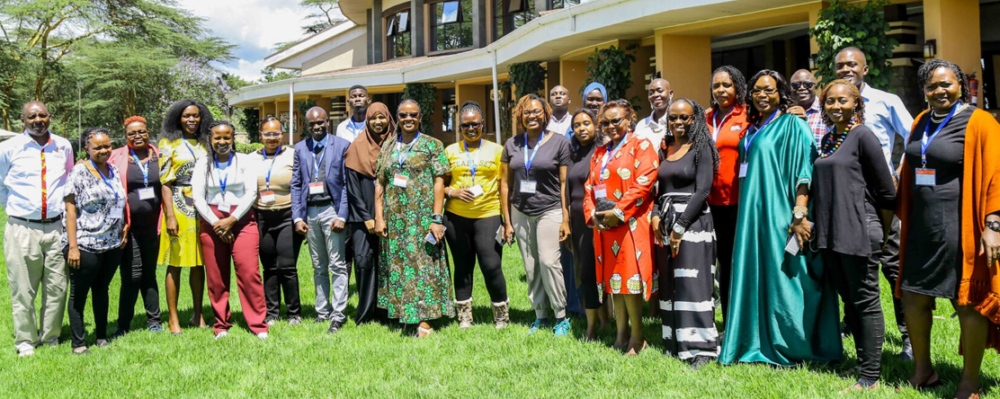
Event
Webinar Series: Infrastructure for Studying Treatment & Addiction Recovery Residences
-
Focus Areas
Alcohol, Tobacco, Drugs & Mental Health -
Expertise
Health Education & Promotion -
Programs
Alcohol Research Group -
Strategic Initiatives
Opioids

Safe and stable housing is critical to recovery from alcohol and drug use disorders, and recovery housing represents a unique, innovative way to ensure that individuals in recovery have access to housing that facilitates recovery from addiction to alcohol and other drugs. However, people who use medication for opioid use disorder (MOUD) face a number of obstacles in accessing recovery housing, while providers experience challenges in addressing the needs of individuals receiving MOUD.
The NIDA-funded Infrastructure for Studying Treatment & Addiction Recovery Residences (I-STARR) project addresses these obstacles and challenges. Launched by PHI’s Alcohol Research Group and partners, the project offers funding, training, and mentorship for investigators new to recovery housing research to conduct small research projects in this general area. Learn more on the I-STARR website.
Training for Recovery Residence Operators
Nine webinars in the training component targeted to recovery housing providers (e.g., operators, owners, and house managers) will be focused on topics related to operations and management of recovery residences. These webinars serve as a primer on: the recovery housing environment and recovery supports; recovery residence management and operations; resident policies; as well as laws, ethics, and fiscal responsibilities. Four webinars for recovery housing providers will focus specifically on topics related to MOUD in different types of recovery residences. These webinars will review issues raised and changes that providers may need to consider when accepting residents on MOUD, issues that need to be considered with respect to resident screening policies and procedures, strategies residences can implement to mitigate diversion risk and create a safe and supportive environment for residents and staff, and examples of programs where prescribers and recovery housing staff have learned to work more closely together to support MOUD in recovery housing.
Upcoming Webinar:
Establishing an Evidence Base for MOUD in Recovery Housing | May 7, 2024 | 11am–12pm PT
This webinar reviews key challenges discussed throughout the webinar series and presents suggestions on how to move research forward on MOUD in recovery housing.
Operator/Provider Webinars & Registration:
- Recovery Environment and Recovery Supports: July 11, 2023
- Recovery Residence Management & Operations: August 1, 2023
- I-STARR Provider Training: Resident Policies: September 5, 2023
- Law/Ethics/Fiscal Responsibility: October 3, 2023
- Treatments and Medications for OUD and MAR: November 7, 2023
- MAT Proficient Recovery Homes: December 5, 2023
- Screening Applicants Prescribed Medications of Concern: January 2, 2024
- Medication Diversion Risk Management: February 6, 2024
- Prescribers: Friends or Foes?: March 5, 2024
- Participating in a Research Study: April 2, 2024
- Establishing an Evidence Base for MOUD in Recovery Housing: May 7, 2024
Training for Researchers
A parallel track of nine webinars will target junior investigators as well as those who may be more established but new to recovery housing research. These webinars will be largely methods-based with the first serving as a primer on experimental and quasi-experimental designs and review of the advantages and challenges involved in each regarding recovery housing research.
Subsequent webinars will focus on identifying, recruiting, and collaborating with recovery housing providers and the principles of community-based participatory research (respectively); recruitment and tracking of recovery home residents; data collection and measurement; reviewing theories about recovery housing mechanisms of action and measurement; statistical techniques; strengthening causal inference within quasi-experimental designs; review of the fundamentals basics of multilevel modeling; and challenges faced by recovery residence operators in meeting the needs of their residents, particularly those on MOUD.
Upcoming Webinar:
Establishing an Evidence Base for MOUD in Recovery Housing | May 7, 2024 | 11am–12pm PT
This webinar reviews key challenges discussed throughout the webinar series and presents suggestions on how to move research forward on MOUD in recovery housing.
Researcher Webinars & Registration:
- Experimental & Quasi-experimental Recovery Housing Research Designs: July 18, 2023
- Sampling & Collaborating with Recovery Residences Providers & Operators: August 15, 2023
- Principles of Community-Based Participatory Research: September 19, 2023
- Recruitment & Tracking of Marginally-Housed and Justice Involved Study Participants: October 17, 2023
- Treatments and Medications for OUD and MAR: November 7, 2023
- Pros & Cons of Mixed Methods Designs: December 19, 2023
- Recovery Housing Mechanisms of Action & Measurement of Key Constructs: January 16, 2024
- Strengthening Causal Inference: February 20, 2024
- Multilevel Modeling and Studying the Impact of Contextual Factors on Outcomes: March 19, 2024
- The Many Challenges of Operating a Recovery Residence: April 16, 2024
- Establishing an Evidence Base for MOUD in Recovery Housing: May 7, 2024
ARG’s mission is to improve public health through deepening our understanding of alcohol and other drug use and investigating innovative approaches to reduce its consequences for individuals, families, and communities.
More Updates
Work With Us
You change the world. We do the rest. Explore fiscal sponsorship at PHI.
Support Us
Together, we can accelerate our response to public health’s most critical issues.
Find Employment
Begin your career at the Public Health Institute.



